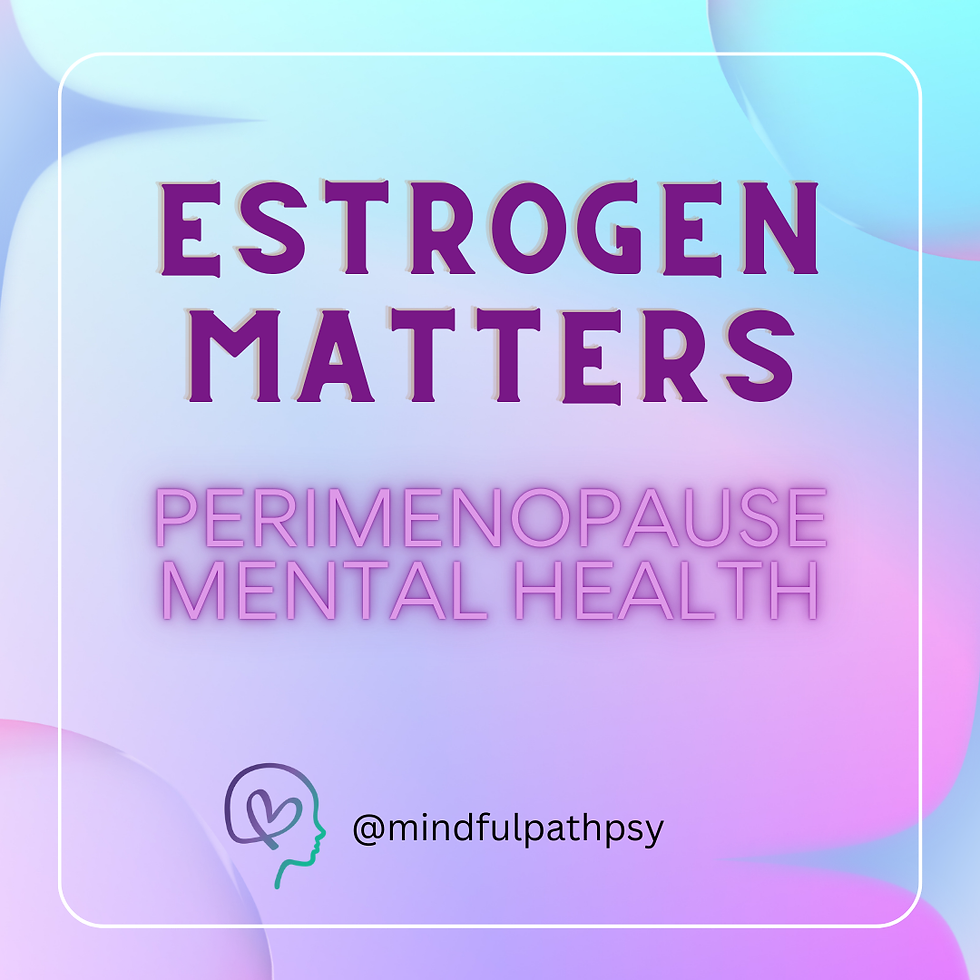Perimenopause, Cortisol, Hot Mama Walks & Weights
- drtera

- Sep 15, 2025
- 3 min read
This morning on my hot mama walk, weighted vest strapped on, I found myself reflecting on the challenge of sifting through all the research and recommendations about physical activity in perimenopause.

We all know that exercise benefits physical and mental health across the lifespan. But let’s get real—sometimes the advice about managing perimenopause symptoms feels overwhelming. Work out to maintain bone density, preserve muscle mass, and protect your sanity…but don’t push so hard that you spike your cortisol!
So, what’s the balance? Let’s break it down.
1. Lifting Heavy Weights: Bone Health & Aging Well
One of the loudest messages in the perimenopause health space is: lift heavy weights.
Why? Estrogen declines in perimenopause accelerate bone loss and muscle breakdown, which increases the risk of osteoporosis and frailty later in life. Research supports strength training as one of the most effective tools to preserve bone density, balance, and muscle mass in midlife women (Watson et al., 2018).
But what does “heavy” really mean? That depends on:
Your current fitness level
Past experience with strength training
Your body’s unique needs
Starting too heavy can cause injury or discouragement. Working with a personal trainer or exploring one of the many evidence-based fitness apps can help you safely progress. You don’t have to overhaul everything at once—start where you are and build gradually.
📌 Resource I loved this week:Take Back Your Health: Hormones & Longevity with Dr. Catherine Johnson (Hot for Your Health with Dr. Vonda Wright).
And yes, I’m loving my weighted vest walks! It’s trending now, but when I first wore one, I felt like the only one. Hot mamas out there rocking your vests—I see you. Virtual fist bump. 👊
For me, physical activity is non-negotiable in managing anxiety and mood. I know I’m not alone in that.
2. Cortisol, Cardio & Listening to Your Body
Here’s the tricky part: movement is essential, but too much can backfire.
Cortisol, our body’s primary stress hormone, naturally rises and falls during the day. Exercise boosts cortisol in the short term, but when we overtrain—especially in midlife—our baseline levels can stay elevated. This can worsen sleep disruption, anxiety, and even weight gain (Hackney, 2020).
So, how much is enough but not too much?
It’s highly individualized and depends on genetics, health status, and history of chronic illness.
Women in perimenopause often need more recovery time than they did in earlier decades.
Sleep and rest are just as critical as movement for hormone regulation and repair.
If you notice signs like persistent fatigue, soreness, new injuries, or worsening sleep—your body may be asking you to pull back. In perimenopause, rest is just as therapeutic as movement.
Take-Home Message
Movement is one of the most powerful tools we have for:
Mood and anxiety regulation
Preserving bone and muscle health
Supporting overall well-being during perimenopause
The key is balance: lift, move, and rest in ways that respect your body’s shifting needs.
Ready for Expert Support?
If you’re navigating perimenopause and want to work with a health psychologist who gets it, I’d love to connect.
✨ I offer telemedicine therapy in 43 states, so you can receive expert care from the comfort of your favorite space.✨ Let’s start with a complimentary discovery call to see if therapy with me is a fit for your needs.
📩 Reach out today—you don’t have to do this alone.
References
Hackney, A. C. (2020). Exercise and the Regulation of Endocrine Hormones. Progress in Molecular Biology and Translational Science, 135, 293–311. https://doi.org/10.1016/bs.pmbts.2015.07.001
Watson, S. L., Weeks, B. K., Weis, L. J., Harding, A. T., Horan, S. A., & Beck, B. R. (2018). High-Intensity Resistance and Impact Training Improves Bone Mineral Density and Physical Function in Postmenopausal Women With Osteopenia and Osteoporosis: The LIFTMOR Randomized Controlled Trial. Journal of Bone and Mineral Research, 33(2), 211–220. https://doi.org/10.1002/jbmr.3284




Comments